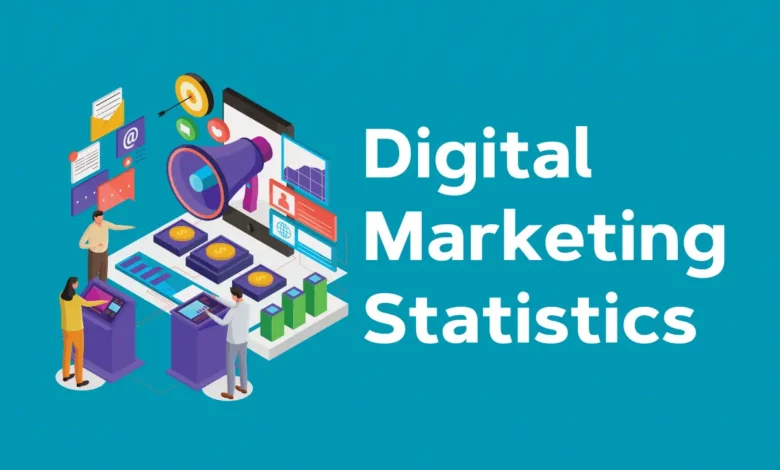
The concept of Digital Marketing has grown like wildfire, especially in recent years in India. As the digital advertising market scale is predicted to reach approximately $25 billion in 2025, companies strive to strengthen and improve their online presence. Social media has become one of the most popular marketing tools, taking over conventional methods, and this change is inevitable.
Key Digital Marketing Statistics
- Widespread internet adoption began, leading to the emergence of digital marketing agencies in 2008.
- In 2010, businesses recognized the need for SEO and online ads to improve Google’s visibility.
- In 2019, digital advertising grew by 26%, reaching ₹13,683 crore, according to Dentsu Aegis Network.
- The overall Indian advertising industry was valued at ₹68,475 crore by the end of 2019.
- By 2020, the digital media market was projected to reach ₹75,952 crore, with a growth rate of 10.9%.
- The number of mobile internet users in India hit 448 million in 2020 and is expected to surpass 900 million by 2025.
- India’s e-commerce market is anticipated to expand to $200 billion by 2027.
Growth of Digital Marketing in India
Digital marketing has gone through phenomenal growth in India, driven by several factors. Increasing internet penetration, combined with the young and technology-savvy population, has opened up new vistas for enterprises. Since companies are now realising the power of digital strategies, markets continue to emerge and flourish on impressive statistics and market size.
Benefits of Digital Marketing in India
Digital marketing has brought about a sea change in how businesses operate in India because it presents loads of advantages in terms of growth. Enterprises leverage these tools to engage with customers by extending reach and giving them precise targeting, cost-effectiveness, and measurable results. Therefore, brands use this strong medium to increase their brand presence and convert leads more effectively, thus changing the Indian scenario.
Popular Digital Marketing Strategies in India
With the boom in digital marketing in India, specific popular strategies are being adopted to help in this growth. Search engine optimization, social media marketing, and content marketing are some techniques that have proven efficient for businesses. Understanding these strategies is essential for leading better in the digital world.
Challenges and Opportunities in Digital Marketing in India
The digital marketing landscape in India has its challenges and opportunities. Some critical issues relate to data privacy, cultural sensitivity, and internet penetration. However, the growth opportunity is remarkable with growing e-commerce and startups in India. Understanding these dynamics reveals the complexity of the evolving industry.
The Future of Digital Marketing in India
The future of digital marketing holds excellent scope, and exciting times are ahead for India. Trends and government initiatives like the Digital India Campaign draw innovations, strategic planning, and prevailing growth. The changing scenario will change how business happens in the digital arena.
The Role of Digital Marketing in E-commerce
Digital marketing is an essential channel in e-commerce, as it mediates between enterprises and broader audiences, ensuring more active customer engagement. Online shopping is gaining prominence daily, so digital marketing is one of the most important strategies for any e-commerce platform eager to drive more customers to its site.
This means businesses can run targeted marketing campaigns targeting particular demographics, ensuring the right message is said to the right people. SEO is a means for better visibility on search engines, enabling possible clients to find specific products quickly. Social media marketing leverages Facebook, Instagram, and Twitter to craft interactive experiences that engage users and foster brand loyalty.
Moreover, email marketing is a potent means of keeping customers informed about the brand’s offering, along with personalized offers and updates that may stimulate repeat purchases. Data analytics allows e-commerce to track customer behavior, helping them hone their marketing techniques for customized shopping experiences.
Digital marketing not only helps interact smoothly with both brands and consumers but also allows the creation of revenues by offering attractive online visibility. With the world of e-commerce constantly changing, digital marketing strategies will be even more important to tackle. Therefore, businesses must learn to adapt and survive in this competitive atmosphere.
Conclusion
India’s fast digital marketing transformation has opened avenues for colossal growth and customer engagement in business. Overwhelming statistics reflect the overall increase in every regard, mainly because of improved internet access and a rise in e-commerce. Besides, visibility and connection with the customer are further developed when organizations tap into focused digital marketing strategies. In today’s competitive market, one can fulfill one’s aims and goals only by availing oneself of these tools and promising a great future for them. Digital marketing is going to play a crucial role in shaping the fate of the Indian economy in the future.



